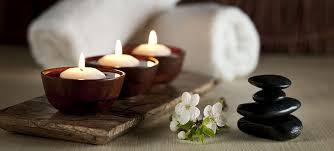Essential Oils: Lavender Edition
Let’s Talk Lavender!
Lavender is a flowering plant in the mint family that’s easily identified by its sweet floral scent. It’s believed to be native to the Mediterranean, the Middle East, and India, with a history dating as far back as 2,500 years.
In ancient times, lavender was used as a holy herb. Additionally, it was often used to freshen up and give a light scent to a variety of personal items, such as clothes and hair.
Lavender is one of the most popular essential oils used in aromatherapy. It is a multipurpose oil, it’s purported to have anti-inflammatory, anti-fungal, anti-depressant, antiseptic, antibacterial and antimicrobial properties, as well as antispasmodic, analgesic, detoxifying, hypotensive, and sedative effects.
Lavender for Anxiety:
A number of studies show that Lavender can lessen anxiety and improve mood. For example, a study published in Physiology & Behavior in 2005 focused on 200 people awaiting dental treatment and found that breathing in the scent of lavender both lessened anxiety and improved mood. In addition, a pilot study published in Complementary Therapies in Clinical Practice in 2012 indicates that lavender-essential-oil-based aromatherapy may help soothe anxiety in high-risk postpartum women.
One popular approach involves combining lavender oil with a carrier oil (such as jojoba, coconut or sweet almond). Once blended with a carrier oil, lavender essential oil can be massaged into your skin or added to your bath. You can also sprinkle a few drops of lavender essential oil onto a cloth or tissue and inhale its aroma, or add the oil to an aromatherapy diffuser or vaporizer.
Lavender Uses:
1. Ease Headaches - Mix a few drops of lavender with coconut or jojoba oil (carrier oils) and inhale or massage into temples, forehead, neck, and behind the ears
2. Improve Sleep - add a few drops on lavender oil to a diffuser near your bed to help relax the mind and the nervous system
3. Heal Minor Wounds - mix a drop or two of lavender oil with distilled water and apply it to your wound. This helps stimulate cell regrowth and heals the wound faster
4. Alleviate Menstrual Cramps - Mix a few drops of lavender with coconut or jojoba oil and massage into the abdomen, relaxing the muscles and reducing cramp pain.
5. Hydrate Chapped Lips - Mix a few drops of lavender oil and coconut oil to make a soothing lip balm
6. Prevent Cold Sores and Acne - Lavender’s antimicrobial and anti fungal properties make it a perfect choice to fight cold sores or add to your skin routine to combat acne.
7. Ease Sunburn - Due to it’s ability to help with skin healing, add a few drops of lavender and peppermint to aloe vera to help with the healing of sunburn and stop the stinging feeling.
8. May Reduce Blood Pressure and Heart Rate - a small study published in 2017 in the Iranian Journal of Pharmaceutical Research found that when 40 people inhaled lavender essential oil after open-heart surgery, they reduced their blood pressure and heart rate, suggesting the oil had a positive effect on their vital signs.
9. Could Relieve Asthma Symptoms - Because of the anti-inflammatory effects of lavender, it may also improve bronchial asthma.
10. Potentially Promotes Hair Growth - A 2016 study found that lavender oil applied to mice made them grow more hair. Their hair also grew thicker and faster than normal.
Lavender is available in different forms:
Lavender Oil Nectar - extracted from the flowering plant is used to create a fragrant oil. The oil can be massaged into the skin, placed in a diffuser, or applied to a pillow or cotton swab and inhaled for aromatherapy.
Lavender Plant - is a sweetly scented perennial plant. It adds color to a garden and gives off a sweet aroma.
Lavender Capsules or Supplements - You can also purchase lavender as a supplement in capsule form. Take as directed for medicinal benefits — just be sure to work with your healthcare provider to ensure the supplement won’t have negative interactions with any medication you’re taking. Also, know that supplements aren’t regulated by the Food and Drug Administration (FDA).
Lavender Tea - This form of lavender can offer a calming beverage that helps ease anxiety and promotes sleep. The U.S. Department of Agriculture's MyPlate guidelines lists lavender tea as a healthy additional to your meal plan. You can purchase lavender tea, or make your own by steeping fresh lavender buds in boiling water for about 15 to 20 minutes.
Other Uses for Lavender
Bugs are a nuisance during the summer and warmer months. You might be happy to learn that lavender may act as a natural bug repellent, keeping away a variety of critters, like flies, mosquitoes, and moths.
Also, you can place lavender in different areas around the house to help freshen the smell of a stale room. This can include the laundry room, the garage, and closets. Or dab a little bit of the essential oil on your finger and place some of the oil around your neck for a natural perfume.
You’ll find that lavender is also an ingredient in some soaps, lotions, and body washes. These products can leave your skin moisturized and promote a calm, relaxing feeling after bathing.
Surprisingly, dried culinary lavender can also be used in recipes. Experiment with the herb yourself and make a Honey-Plum Lavender Gratin, or maybe Hint-of-Herb Butter Cookies.
*If a label does not clearly state that it is an 'essential oil,' then it is not an essential oil and should not be used or treated as such.*
*Every persons body is different and will react differently to lavender essential oil. It may cause skin irritation or an allergic reaction in some individuals. If you experience nausea, vomiting, or a headache after using lavender, discontinue use immediately.*







Comments
Post a Comment